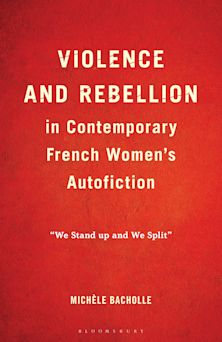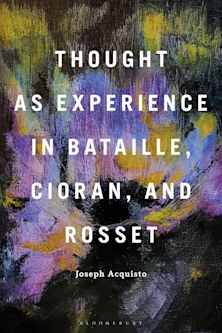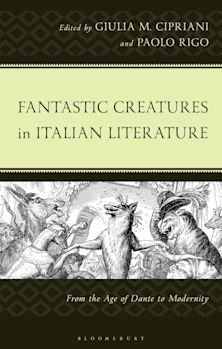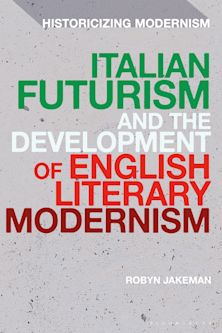- Home
- ACADEMIC
- Literary Studies
- Western European Literature
- J.M.G. Le Clézio
For information on how we process your data, read our Privacy Policy
Thank you. We will email you when this book is available to order
You must sign in to add this item to your wishlist. Please sign in or create an account
Description
This monograph represents the first comprehensive study of the multifaceted representations of the complex phenomenon of globalization in the diverse repertoire of the 2008 Nobel Laureate in Literature. This interdisciplinary investigation explores the initial euphoria related to the ambivalent concept of the ‘global village’ and how this evaporated dream can perhaps be reappropriated to create a better global society for both the human and Cosmic Other through the lens of Le Clézio’s fiction.
Chapter one offers a conceptual framework for understanding the Franco-Mauritian author’s nuanced ideas concerning globalization. It also probes the original ambivalence of McLuhan’s celebrated notion of a global village in addition to its euphoric reception. Chapter two explores the current state of the interconnected, interdependent modern world in which many disenfranchised and marginalized individuals are living a recurring nightmare. Chapter three examines Le Clézio’s deconstruction of the simplistic ideology of consumerism that is indicative of contemporary consumer republics. This section also underscores the intricate systems of hegemonic domination, such as the media, created by the transnational corporations that dominate the global economic landscape to sustain their supremacy. Chapter four delves into Le Clézio’s ecocentric humanism that extends to all other living creatures by debunking Manichean dualities that separate human beings from elemental matter and the rest of the universe. The final chapter examines recent texts, such as Raga, Ourania, and Histoire du pied et autres fantaisies, which encourage the reader to envision what a more just and egalitarian global village might encompass. These works dismiss neoliberal fantasies and consumerist ideology that have justified the systematic exploitation of everyone and everything in the name of progress, but they also urge the modern subject to be resilient in the face of tremendous adversity. Instead of accepting the imposition of a monolithic, socioeconomic model that is riddled with inequality and injustice and which serves the interests of the Happy Few, Le Clézio suggests that the first step is to resist integration into the global village by stoically confronting reality and having the necessary courage to propose another vision which counterpoints McLuhan’s misguided one.
Table of Contents
Chapter 1: The ‘Global Village:’ An Evaporated Dream Turned Nightmare
Chapter 2: Defending the Marginalized and Disenfranchised Inhabitants of the Global Village
Chapter 3: Consumerism, the Media, and the Anonymous Forces that Sustain the Modern World in Le Clézio’s Narratives
Chapter 4: Deconstructing the ‘Genesis Myth’ and Simulating Cosmic Empathy for the Entire Material Universe
Chapter 5: Resisting Global Hegemonic Domination in Le Clézio’s Narratives and the Importance of Interculturality
Conclusion
Postscript
Product details
| Published | 20 Sep 2012 |
|---|---|
| Format | Ebook (PDF) |
| Edition | 1st |
| Extent | 230 |
| ISBN | 9798216347941 |
| Imprint | Lexington Books |
| Publisher | Bloomsbury Publishing |
About the contributors
Reviews
-
Also author of "Privileged Moments" in the Novels and Short Stories of J. M. G. Le Clézio (2008), Moser (Mississippi State Univ.) takes the reader on a journey through globalization as depicted in Le Clézio's works. In five chapters, Moser identifies the key theme in the French-Mauritian's fiction: globalization and its ill effects—marginalization and exploitation, conflicts between cultures, destruction of the environment and of community. With support from specialists across disciplines, he is able to construct a vision of the global village that is in direct contrast to the model created by Marshall McLuhan. According to Moser, rather than focus on the 'happy few' who have benefitted from the labors of the many, Le Clézio calls for a return to petitesse (smallness) to create a global village that will be sustainable. The book concludes with Moser's interview of Le Clézio, and this conversation enriches the content of the book by allowing the reader direct access to Le Clézio's thoughts on globalization. Included are notes for each chapter. Summing Up: Recommended. Upper-level undergraduates through faculty.
Choice Reviews
-
We can immediately see that talking about Moser’s work is to leave literature and to arrive in a very different realm, which is that of social progress. . . .Moser seeks to inscribe the modern day relevance of his work [J.M.G. Le Clézio] in light of the numerous challenges that globalization poses today.
Dalhousie French Studies
-
As a contribution to scholarly research on Le Clézio in English, J.M.G. Le Clézio: A Concerned Citizen of the Global Village is most welcome, with Moser providing access to both Le Clézio’s
writings and recent criticism in French through his translations in the text. Moser’s twin passions for the Nobel laureate’s work and its potential to highlight a better way of being in the
world combine to make this book an engaging adventure in the growing field of Le Clézio studies.Modern and Contemporary France
-
The fictional and philosophical works of 2008 Nobel Laureate J.M.G. Le Clézio have never been more relevant than in the world of today, and this book shows why. In an introduction that sets the methodological framework for the chapters that follow, Keith Moser advocates for an interdisciplinary and humanistic approach to the current crisis of globalization and its attendant ecological issues. Moser argues effectively for 'the dire significance of literature and of the humanities in general' (xii) for altering the potentially disastrous course upon which humanity has embarked in the wake of industrialization. . . .This timely and stimulating discussion complements a fine book that discovers ample new territory in Le Clézio studies, a field that will continue to grow.
Contemporary French Civilization
-
This book is extremely well written and organized; it is an excellent survey of Le Clézio criticism . . . which permits specialists and lay readers alike to perceive Le Clézio’s work from another angle. But, what is most remarkable about Moser’s work is that it highlights . . . what a literary work can do by correctly showing that literature is a space that allows for reflection about our socioeconomic system which also facilitates communication amongst cultures in order to explore possible solutions to our problems.
Les Cahiers Le Clézio
-
This ambitious study aims to do justice to the wide range of Le Clézio’s work, the urgency of the crises that inspire him – globalization, exploitation and poverty, the loss of authentic communities, intercultural conflict, the destruction of the environment – and the powerful imaginative vision that animates his fiction. Keith Moser efficiently documents the testimony of specialists and compiles readings of the novels and meditative essays, translating extracts from many works which are not available elsewhere in English. By setting Le Clézio’s writing within key fields of contemporary ethical debates, this book offers insights into one of the significant authors which the twentieth-century has bequeathed to the twenty-first.
David H. Walker, Department of French, University of Sheffield



































